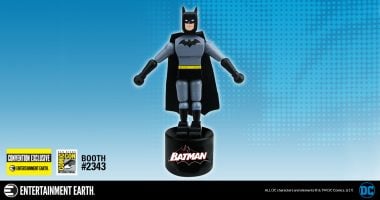When I was about 12-years -old my mother gave me a VHS copy of Young Frankenstein (It’s pronounced Fronkensteen!) for Christmas. I’d never seen it before, I didn’t ask for it, but something compelled her to get me that movie. Soon after watching it the only thing I could think was “give me more Gene Wilder” – give me more Mel Brooks, of course – but the main thing I took away from it was that Gene Wilder was a comedic genius and I needed to watch every single one of his movies.
From there I went to my local Blockbuster – with my mother in-tow of course, due to my being a child and video stores didn’t take to kindly to a 12-year-old renting R-rated films – and rented Blazing Saddles, Stir Crazy and See No Evil, Hear No Evil. The greatest hits, if you will, of Gene Wilder.
From those films and the man himself I was able to find a voice and make people laugh just by quoting him. I know it’s kind of lazy, but at 12 years old it’s hard to fit in, and it’s especially hard to make people laugh when your comedic repertoire consists of underdeveloped fart jokes. I learned from Wilder’s character; I figured out sarcasm, deadpan and that comedy and making people laugh is a much better way to make friends than trying to be mysterious or edgy.
Most identify him from Willy Wonka And The Chocolate Factory. Although he is funny in it, it isn’t the quintessential Gene Wilder I took influence from.
That seemed reserved for his entries with Mel Brooks. In The Producers, Blazing Saddles and the aforementioned Young Frankenstein, Wilder went to another level with Brooks – the two even received a nomination for best-adapted screenplay for Young Frankenstein in 1975. Their comedy pairing was so good, that its accomplishments belong in the same breath as the pairing of Martin Scorsese and Robert DeNiro. They were transcendent roles from transcendent filmmakers, but Brooks and Wilder did it with ridiculous premises that no one would ever think to put in the same breath as those other two. It’s impossible to compare their bodies of work. But Wilder took the roles he was given and put his special signature on them.
Wilder was able to add a naivety to his parts like the classic macho archetype he portrays in Blazing Saddles, or the mad scientist trope in Young Frankenstein, that brought them to a level you could laugh at. When Augustus Gloop is ushered away to his chocolaty demise in Willy Wonka, it’s Wilder who’s gentle cadence makes us okay with the fact that a child may have just died.
That’s what Wilder provided us all with. The ability to laugh at the awkward and over-confident fool who left behind a legacy that was a “world of pure imagination.”
The views expressed in this article are solely those of the writer and do not necessarily reflect the views of Entertainment Earth, Inc. it’s owners, officers, employees, affiliates, subsidiaries, partners, vendors, customers or licensors.










